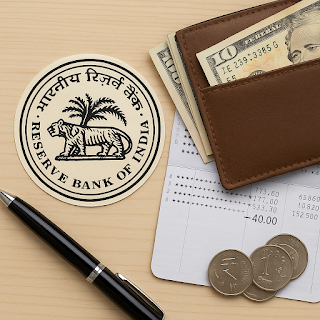Property Documents: Check These Papers Before Buying Property or Risk Legal Troubles
In today’s era of rising property prices, buying a home or land is a major financial decision. People invest their life savings to own a property, but what if they later find out that the property has legal disputes or faulty documents? Such situations can lead to long legal battles and financial losses.
To avoid such issues, it is crucial to verify all the necessary documents before purchasing a property. This article will guide you through the essential documents you must check to ensure a smooth and legal property transaction.
Essential Documents to Check Before Buying a Property
1. Title Deed
The Title Deed is one of the most crucial documents that verify the ownership of a property.
How to Verify:
- Ensure that the seller is the legal owner of the property.
- Check if the property is free from legal disputes, mortgages, or encumbrances.
- Consult a lawyer to authenticate the Title Deed before proceeding with the purchase.
2. Encumbrance Certificate (EC)
This certificate confirms that the property has no legal claims, unpaid loans, or disputes.
How to Obtain It:
- You can get the Encumbrance Certificate from the Sub-Registrar’s office.
- It provides details of any legal or financial liabilities on the property for the last 12 to 30 years.
3. Sale Deed
The Sale Deed is the official document that transfers ownership from the seller to the buyer.
Important Points to Check:
- Ensure the Sale Deed is properly registered.
- Verify the details of the buyer, seller, property address, price, and payment terms.
- Visit the Registrar's office to authenticate the Sale Deed.
4. Loan Clearance Certificate
If the property was mortgaged, make sure all outstanding loans have been cleared.
How to Verify:
- Request a No Dues Certificate from the bank.
- Confirm that the property is not under any unpaid loan or financial liability.
5. Land Use Certificate (LUC)
Before purchasing a plot, verify its land use category—whether it's residential, commercial, or industrial.
How to Get It:
- This certificate is issued by the local municipal or development authority.
- If buying agricultural land, check whether it can be legally converted for residential use.
6. Layout Plan & Building Approval Certificate
If purchasing a flat or house from a builder, verify whether the project is approved by the government authorities.
How to Check:
- Obtain a Layout Approval Certificate from the municipal corporation.
- Ensure there is no illegal construction or unauthorized extension.
7. No Objection Certificate (NOC)
Before purchasing a property, check if it has NOCs from relevant authorities.
Who Issues It?
- The builder or previous owner should provide this certificate.
- Verify NOCs from local authorities, fire department, and pollution control board.
8. Occupancy Certificate (OC)
An Occupancy Certificate confirms that the building is legally constructed and fit for occupation.
Why It’s Important:
- Ensures the building follows all construction norms.
- Required for bank loans, electricity, and water connections.
- Without an OC, the property may be considered illegal by authorities.
9. Property Tax Receipts
Ensure that all property taxes have been paid before purchasing.
How to Verify:
- Check tax receipts for the last five years.
- Visit the local municipal office to verify the tax records.
10. Commencement Certificate (CC)
If buying an under-construction property, ensure that the builder has a Commencement Certificate.
Why It’s Necessary:
- Confirms that construction is legally approved.
- Prevents issues related to illegal construction in the future.
Other Important Things to Consider Before Buying Property
✅ Verify Ownership Rights – Check Title Deeds and other documents to confirm the legal owner.
✅ Follow Local Regulations – Ensure that the property complies with state and municipal laws.
✅ Consult a Lawyer – Get all legal documents verified by a professional.
✅ Check the Seller or Builder’s Reputation – Research past projects and legal history before dealing with a builder.
✅ Avoid Unrealistic Offers – If a property is too cheap, it may have legal issues or hidden costs.
Conclusion
Buying a property is a significant financial decision, and any mistake can lead to legal complications and financial loss. To ensure a safe and hassle-free purchase, always verify the required documents and seek legal assistance if needed. With the right precautions, you can confidently invest in property without any risk of fraud or legal trouble.
If you found this article helpful, share it with your friends and family so they can also make informed property purchases.





Comments
Post a Comment